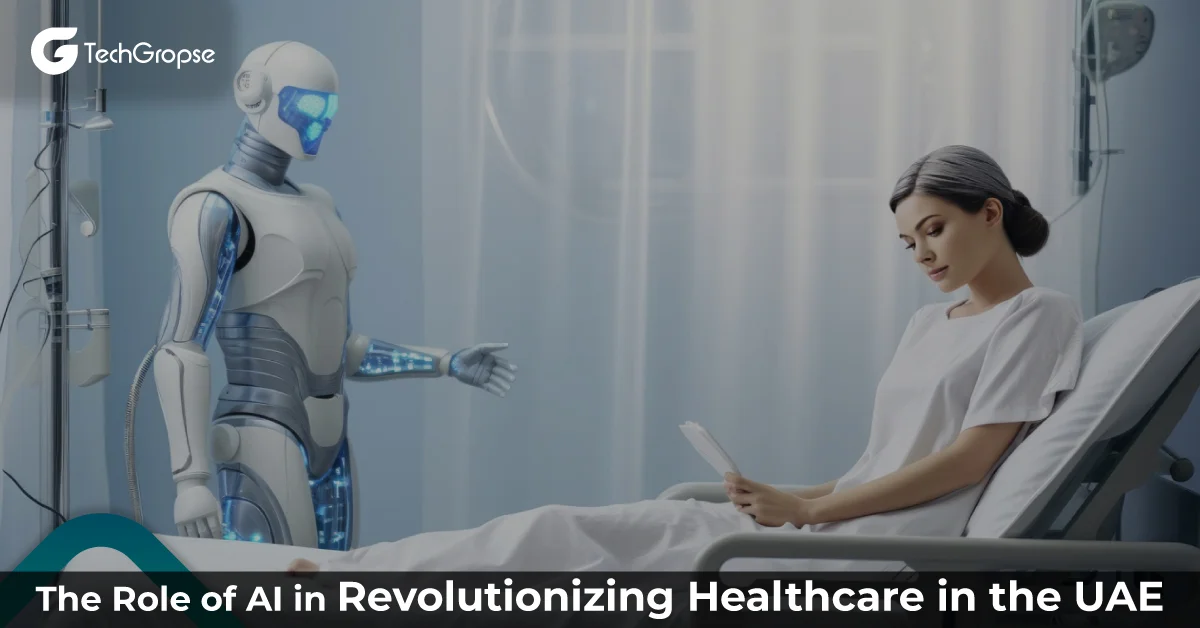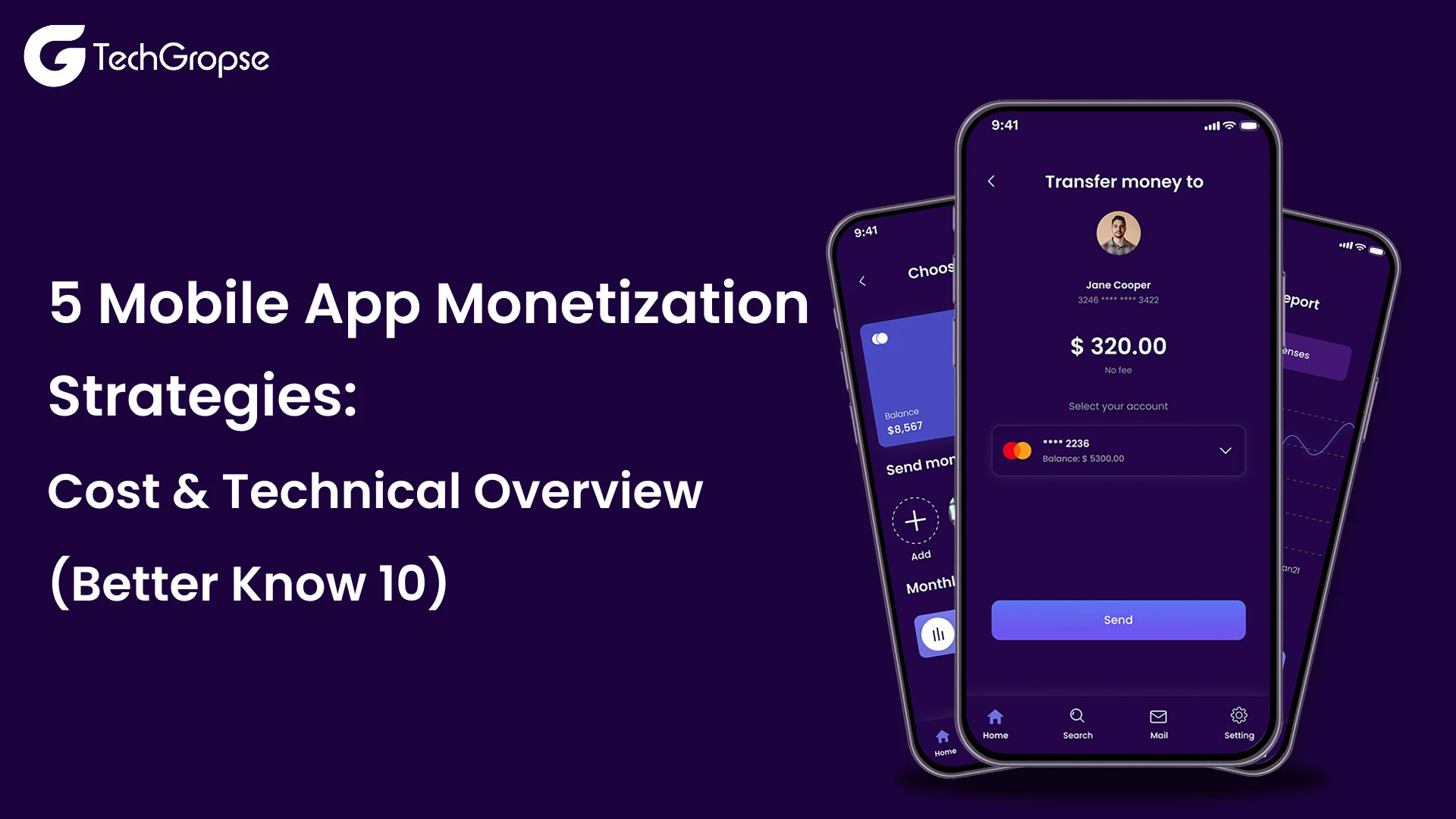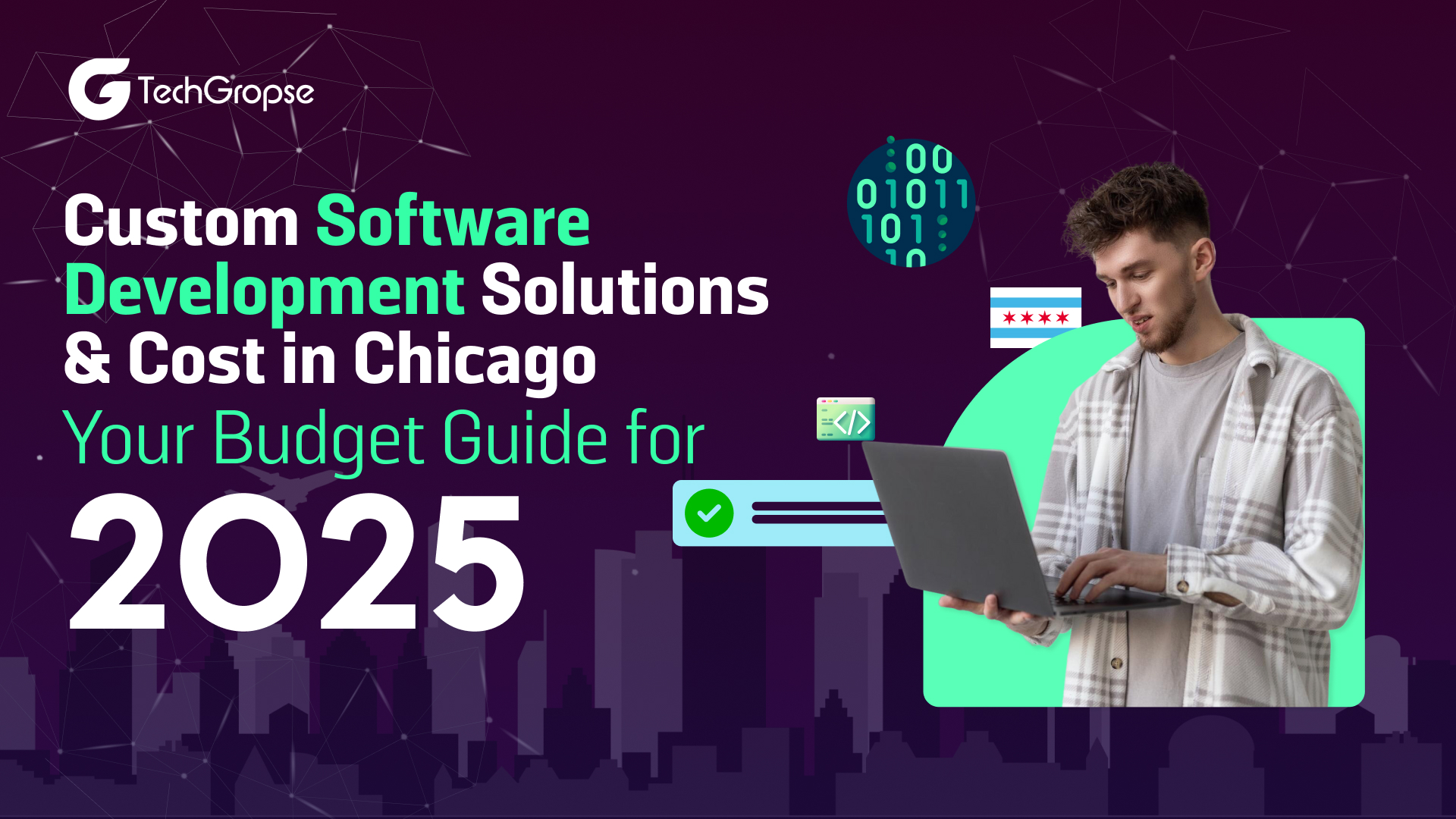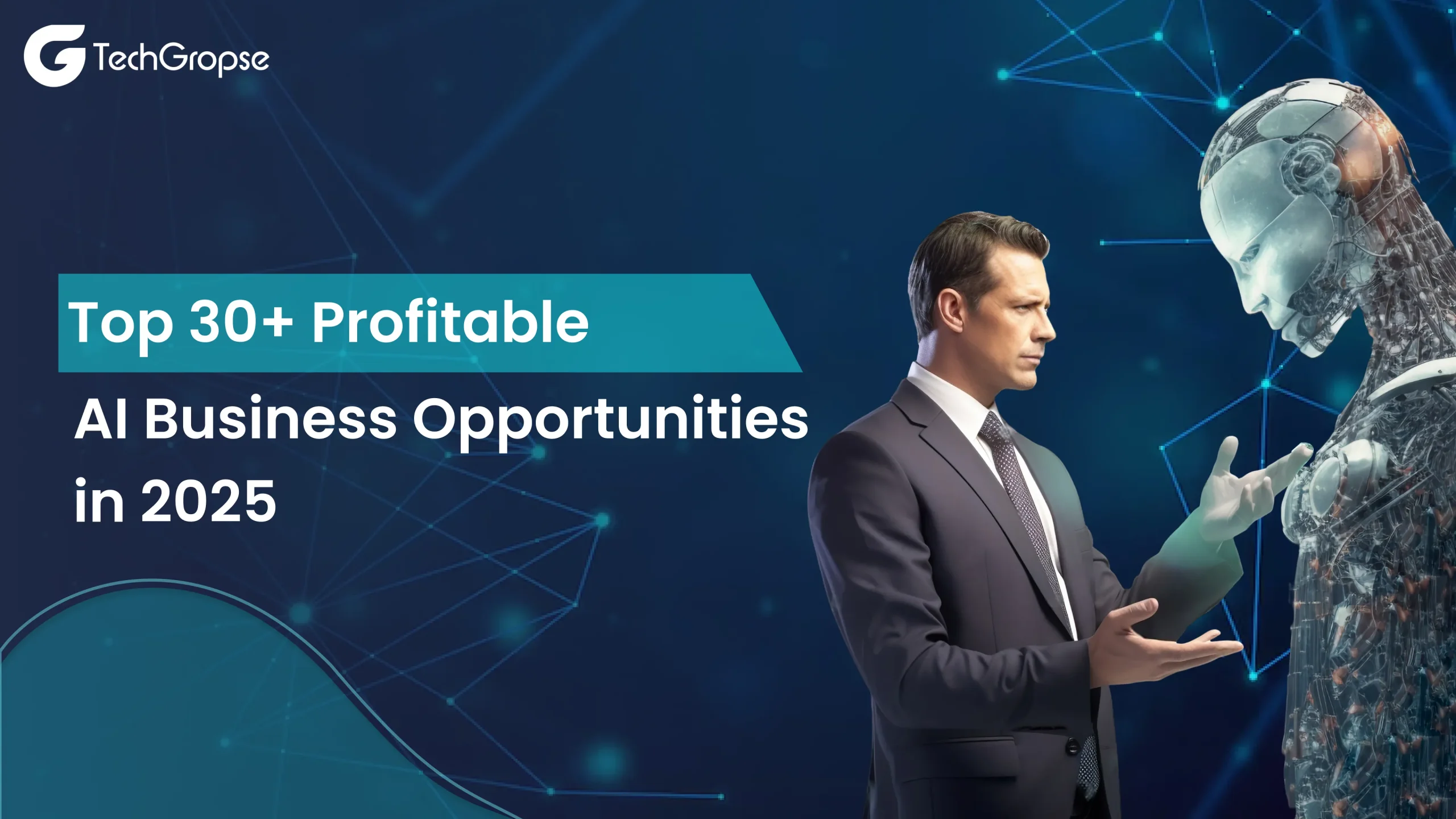Dubai, a city where the latest technologies are all over the air, and AI is one of the most demanding technologies in every field. If AI is transforming all industries, then why should healthcare be left out? AI in Revolutionizing Healthcare has multiple advantages, and it has smoothed the work of the healthcare industry. AI-driven predictive analysis will help in making data-driven and predictive decisions.
If we talk about data in healthcare industries, then supported by the National Strategy for Artificial Intelligence 2031, the implementation of AI in Revolutionizing Healthcare is advancing at an unparalleled pace. The UAE’s AI healthcare sector is expected to hit $138 million by 2030, growing at an annual rate of 34.6%, indicating that the nation is making significant progress in establishing itself as a global center for AI-powered healthcare innovations.
Now let’s get started with knowing how AI can transform the healthcare industry…
How AI is Revolutionizing Patient Care and Medical Diagnostics?

Generative AI in the healthcare industry is not only helping it in giving predictive analysis and data-driven decisions, but it also helps in patient care and medical diagnostics. In the next section, we will learn how AI is doing so. Let’s get started.
Enhancing Diagnostic Accuracy
A major contribution of AI Powered Medical Assistant to healthcare is enhancing the precision of diagnoses. Conventional diagnostic techniques depend on a physician’s knowledge and accessible data, while AI can process significantly more information than a person can. AI algorithms are capable of analyzing medical images such as X-rays, MRIs, and CT scans, detecting anomalies and patterns that might not be easily noticed by the human eye. This ability is particularly beneficial for identifying early-stage cancers, heart diseases, and neurological disorders, where timely diagnosis can significantly impact treatment results.
AI-driven imaging tools are employed to identify breast cancer in its initial stages. By analyzing thousands of mammogram images and gaining insights from them, these systems can identify questionable areas with greater accuracy, assisting radiologists in making better-informed choices. Likewise, AI is transforming ophthalmology, where it can diagnose diabetic retinopathy accurately by examining retinal images—often surpassing traditional approaches.
Personalized Patient Care
The next AI innovation in healthcare is personalizing patient care. Want to know how AI is helping in personalizing patient care? Keep reading the blog. There is a subset of AI that you all may be aware of that is called Machine Learning, also known as ML. AI and machine learning in healthcare models can analyze a patient’s genetic information, medical history, lifestyle, and environmental factors that help in predicting the exact condition of the patient and draft personalized care for that patient. This helps nurses to take care of each and every patient according to their body, disease, and current condition.
In addition to that, this personalized approach ensures that patients receive treatments tailored to their unique needs, reducing the likelihood of complications and improving overall outcomes. Moreover, in the cases of chronic diseases, the AI monitors each and every condition and behavior. Then, it constructs data and predicts the best care that can suit the patient to help them in recovering as soon as possible.
Optimizing Healthcare Operations
In addition to diagnostics and patient care, AI innovation in healthcare is enhancing healthcare operations, increasing the efficiency of hospitals and clinics. AI-powered systems are able to forecast patient admissions and coordinate resources like staffing, equipment, and bed availability. These tools examine past data and patient movement trends to forecast demand, helping hospitals be more ready for surges in patients. Consequently, waiting periods are shortened, allowing healthcare providers to offer more prompt care.
Virtual assistants and chatbots powered by AI are becoming more prevalent in the healthcare sector. These resources assist patients in booking appointments, overseeing their medications, and obtaining crucial healthcare details without having to go to a clinic. Virtual assistants can also offer symptom-checking tools, advising patients on if they require medical care. This not only enhances patient involvement but also liberates essential time for healthcare professionals, enabling them to concentrate on more urgent cases.
This is how AI is revolutionizing patient care and medical diagnostics. Now, let’s learn about the efficiency of the healthcare industry with AI technology in the next sections.
How Artificial Intelligence Improves Healthcare Efficiency?

AI is rapidly transforming the healthcare industry by automating administrative tasks; this also helps in reducing human error.
Automating Administrative Tasks
AI in healthcare in Dubai helps in improving the efficiency of the healthcare industry by automating the daily tasks and reducing the need for manual tasks.
Reducing Human Error
AI chatbot in healthcare also helps in reducing human errors by eliminating their tasks and making them automatic and digital.
Improving Patient Outcomes
As discussed in the above section, AI in healthcare improves patient healthcare outcomes by providing personalized healthcare solutions.
The next part is where we see the latest AI innovation in the healthcare industry in Dubai.
Latest AI innovation in the Healthcare Industry in Dubai

Launch of Global AI healthcare academy
In 2024 Abu Dhabi Launches the global AI healthcare academy in collaboration with Mohamed bin Zayed University of Artificial Intelligence (MBZUAI) and Core42.
Med42’s Al Clinical Language Model
Med42, a health-tech company based in Abu Dhabi, developed an open-access clinical language model that is comparable in performance to leading models
like GPT-4 and Med-Gemini.
M42’s Development of AIRIS-TB
AIRIS-TB, an AI-powered chest X-ray system created by M42, is transforming tuberculosis (TB) screenings in the UAE by handling as many as 2,000 chest X-rays each day and decreasing radiologist workload by approximately 80%
Airdoc’s Al Retinal Image Interpretation System
While comprehensive details about Airdoc’s AI retinal image analysis system in the UAE are not easily accessible, the nation’s healthcare sector is progressively integrating AI technologies such as Airdoc’s to improve diagnostic abilities.
Advantages of AI in the Healthcare Industry
In this image, you will get to see the advantages of implementing AI in your healthcare app development.
- AI-Powered Diagnostics and Imaging
- Predictive Analytics for Disease Prevention
- Robotics and AI in Surgery
- AI-Driven Personalized Treatment Plans
- AI Chatbots and Virtual Assistants
- Smart Wearables and Remote Patient Monitoring
- AI in Drug Discovery and Research
- AI for Healthcare Administration
Conclusion
In this blog, we have discussed the benefits of AI in the healthcare industry, like how AI is transforming this industry and the impact of AI in healthcare, etc. As you can see, there are multiple advantages of implementing AI in healthcare app development. This is not only helpful for doctors and nurses but also beneficial for patients, medical stores, ambulances, etc. In Dubai, the healthcare industry is at its peak and is known worldwide to provide the best medical services. Integrating AI into the application makes it even more advanced.
If you are someone who relates to the healthcare industry and wants to build an AI-based healthcare app, then you must contact the AI app development services in Dubai. They will provide you with the best mobile app development services in Dubai, and it would be even better if you chose the local reputed mobile app developer for building your AI-based mobile application.
Now, if we have guessed you right, then you must have worried about finding the best mobile app development company in Dubai to build your mobile application. So, let us tell you that you don’t have to go somewhere else as we are the topmost Mobile App Development Company in Dubai, and we have been serving in this industry for past 10+ years. In addition to that, we have also provided free consultancy services to small businesses and startups, so if you are one of them, then you can contact us, and we’ll guide you through.
If you are still confused about why you should choose us over other mobile app development companies, then we can tell you multiple reasons for hiring us.
Contact Us Now!
Why you should hire TechGropse?
- We provide free consultancy services to startups and small businesses
- We have 10+ years of experience in the domain
- We provide multiple advanced digital solutions to all the industries
- To date, we have successfully delivered 1000+ projects
- We have a family of 450+ satisfied clients
- We opt for Agile methodology for every development process
- We have a strong portfolio and client testimonials
So, these are some of the major reasons of choosing TechGropse as your mobile app development partner and trust us we will provide you the dream application.
Frequently Asked Questions
AI is transforming the healthcare ecosystem in multiple ways, and some of them are:
- Telemedicine
- Disease surveillance
- Operational efficiency
- Improved diagnostics
- Personalized treatment
- Radiology & imaging
- Accelerated medical research
- Quality control
The cost of implementing AI in healthcare in the UAE can range from $50,000 to $400,000 (AED 183,500 to AED 1,468,000). Smaller-scale projects, such as AI-powered diagnostic tools, may cost around $50,000 to $150,000 (AED 183,500 to AED 550,500), while larger-scale implementations, including hospital-wide Al systems, can range from $200,000 to $400,000 (AED 734,000 to AED 1,468,000). Ongoing maintenance and compliance may add another $10,000 to $50,000 (AED 36,700 to AED 183,500) annually.

Hello All,
Aman Mishra has years of experience in the IT industry. His passion for helping people in all aspects of mobile app development. Therefore, He write several blogs that help the readers to get the appropriate information about mobile app development trends, technology, and many other aspects.In addition to providing mobile app development services in USA, he also provides maintenance & support services for businesses of all sizes. He tried to solve all their readers’ queries and ensure that the given information would be helpful for them.










